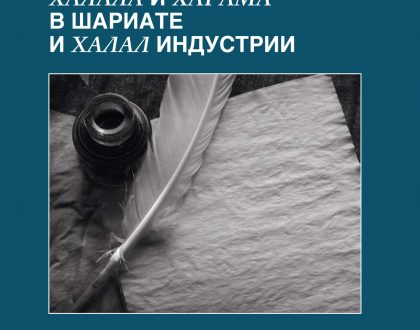The Benefits to Cooperative Learning in Algerian Public Schools

By: Mildred Arbelo
In 1962, Algeria finally became free from France’s colonial rule and the forced compliance of its population to French traditions and values. Upon independence, Algerians decided to rid themselves of French culture by making Arabic the medium of instruction in public schools with French being taught as a foreign language (Metz, 1994). However, Algeria continued to maintain French educational practices in schools, such as the French fact acquisition model which is based entirely on lecture and memorization (Soreda). Unfortunately, this method leaves little to no room for communication among students, a 21st century skill students should be developing as it helps build self-confidence and better prepares students for the workforce.
In fact, according to the Labour Market Report, Algerians under 30 are struggling to enter the workforce as 29.8% of them are currently unemployed, including those with higher education degrees (Education for Employment, 2019). One of the justifications employers give for not hiring them is that they do not possess the 21st century skills companies are seeking such as communication, leadership, teamwork, and other non-technical skills (Djawad & Smail, 2018). In addition, Algerian youth lack fluency in foreign languages such as English and French which dominate Algerian universities and the workforce but are not practiced effectively in K-12 learning. Due to these reasons, it is apparent that the current instructional model in Algerian public schools is not beneficial to a child’s future nor to their holistic development.
Recent efforts to reform the Algerian education system have led to the adoption of Cooperative Learning strategies as a way to promote more 21st century skills in the classrooms. This method emphasizes collaboration among students as they are placed in small groups to achieve a common goal. This is not only advantageous for students, but also the teachers’ who have their work cut in half, if done correctly, as they do not need to spend time lecturing and can simply observe students at work while they learn from each other. Cooperative Learning must have five basic elements to be implemented correctly: positive interdependence, individual accountability, face-to-face interaction, social skills, and group processing (Asma & Amine, 2018). With professional development training and guided practice, teachers could implement Cooperative Learning effectively.
The Cooperative Learning method teaches students to be self-directed learners, work collectively, as well as take responsibility, among other needed skills to function in the 21st century work and social environments (Asma & Amine, 2018). Perhaps the most useful component of Cooperative Learning is group processing which involves students planning together how they want the group to operate. The students are able to discuss behavior initiatives and steps they intend to take to achieve their common goal. Cooperative Learning prepares students to be leaders and team players which are desirable attributes for their futures.
Employers are indeed seeking employees who have these 21st century skills, along with the ability to communicate in English and French. For example, the main language of those who are unemployed is Arabic (88%), while only 2% of the unemployed speak English (Education for Employment, 2019). Learning a new language can be challenging, especially when lecturing does not permit oral practice with other people. When utilized in assisting students in learning English in their English as a Foreign Language (EFL) classes, the Cooperative Learning model can perform the twin tasks of helping students improve their English language skills as well as other 21st century skills such as communication and teamwork.
The Cooperative Learning model has been proven to be especially beneficial in EFL, allowing students to develop expertise in both areas employers are seeking (Salmi & Zard, 2018). Through social interaction, students are better able to understand difficult terms, concepts, and meanings of the language they are studying. Students will also cultivate self-assurance via exchanges with peers and be more prepared for interviews – after all, many of the unemployed Algerian youth felt pessimistic when applying for jobs as they did not have enough confidence in themselves (Education for Employment, 2019).
With a Global Pandemic shutting down schools around the world or discouraging physical proximity in classrooms that would come with group work, many may question how Cooperative Learning would function in either case. In a remote setting, Cooperative Learning can still be implemented with breakout rooms, a tool that allows the teacher to place students in simultaneous but separate video calls to complete assigned tasks. Students would still be able to participate in achieving a common goal together in this scenario. In a classroom setting, with shields and face masks present, the Cooperative Learning method can still be exercised safely. Questions still remain on how this method will work in crowded classrooms and schools lacking resources but finding meaningful ways to integrate it into regular pedagogical practice should be a good start; teachers can address problems as they arise, including taking turns having students gather outdoors for this activity.
To completely liberate their country from French conventions and to move toward 21st century learning methods, Algeria must do away with the French fact acquisition model. Instead, it needs to encourage schools to adopt Cooperative Learning. In order to effectively do so, Algerian educators will require training at the pre-service stage as well as through in-service professional development programs. In turn, this would empower students to become better prepared in 21st century skills, enabling them to have a greater chance to become a part of the global market while furthering their holistic human development.
Bio
Mildred, a first-year graduate student in the Cultural and Educational Policy Studies Program at Loyola University Chicago, hopes to become more involved with creating policy for school districts upon graduation. She taught Middle School English Language Arts for two years in Washington State and is now teaching the same subject in the Chicago Public School District.
References
Asma, K. & Amine, B. (2018). Cooperative Learning: Towards a New Outlook in Algerian Universities. European Journal of Research and Reflection in Educational Sciences, 6(1), 1-10. https://doi.org/ISSN2056-5852
Djawad, B.N, & Smail, B. (2018). English Language Education in Algeria in the Light of the Test-Oriented Teaching Approach. International Journal of Linguistics, 10(4), 29-42. http://doi.org/10.5296/ijl.v10i4.13310
Soreda, C.M.R. (n.d). Educational Curriculum in Algeria. Retrieved from https://www.slideshare.net/cyrasoreda/educational-curicullum-in-algeria
Education for Employment. (2019). Building Algerian youth’s future. Education for Employment, 1-41. Retrieved from https://efe.org
Metz, H.C. (1994) Arabization. Algeria: A Country Study. Washington: GPO for the Library of Congress. Retrieved from http://countrystudies.us/algeria/53.htm
Salmi, K. & Zard, F. (2018). Investigating the Use of Cooperative Learning Method in Algerian EFL Classes: Case Of Study: Al’Haj Kheri L’khier Secondary School, Magra, M’sila. University of Mohamed Boudiaf.
Recommended Posts

Ukrainian: Прочитання знамень: коранічний погляд на мислення “Спеціальні видання Серія 26” (Reading the Signs: A Qur’anic Perspective on Thinking)
March 3, 2025


